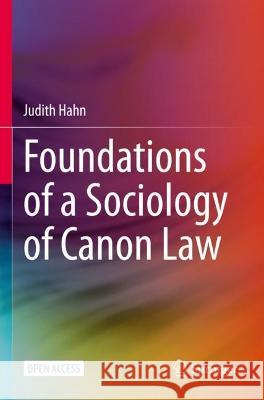Foundations of a Sociology of Canon Law » książka
topmenu
Foundations of a Sociology of Canon Law
ISBN-13: 9783031017933 / Angielski / Miękka / 2022 / 252 str.
Kategorie:
Kategorie BISAC:
Wydawca:
Springer
Język:
Angielski
ISBN-13:
9783031017933
Rok wydania:
2022
Dostępne języki:
Angielski
Ilość stron:
252
Waga:
0.36 kg
Wymiary:
23.423.4 x 15.623.4 x 15.6 x 1
Oprawa:
Miękka
Dodatkowe informacje:
Wydanie ilustrowane











